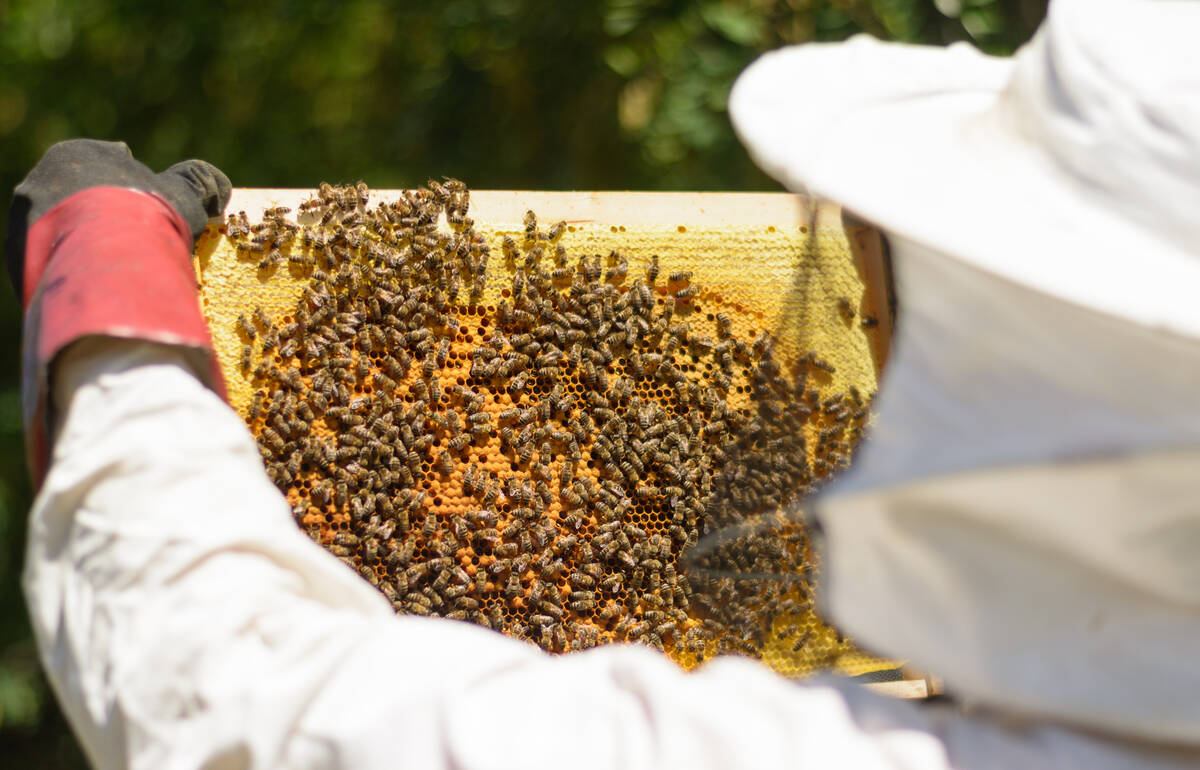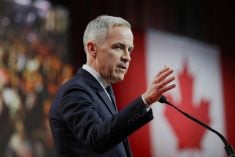If Canadians want to cut carbon emissions to mitigate climate change, a carbon tax is the most efficient way to do it, says National Post, columnist Andrew Coyne.
“My economics training tells me that’s the best way to approach this,” Coyne told the Canadian Global Crops Symposium April 12.
“Carbon pricing I guarantee you is cheaper by multiple factors than the alternatives that are often proposed,” he said. “Subsidizing people to use less carbon is really a cost-ineffective way to do it. And regulation is impossible to enforce. I know people are having to grapple with the challenge that it presents, but if we are going to do something about this international problem well then that’s the way to go.”
Read Also

Malta bee exporter blasts criticism from Canadian beekeepers
A honeybee exporting firm on the Mediterranean island of Malta says they’re collateral damage to a dust-up in the Canadian honey sector over imports of replacement bees.
Under the Paris agreement to mitigate climate change, Canada agreed to cut its greenhouse gas emissions 30 per cent from 2005 levels by 2030. To that end Ottawa says every province must have a $10-a-tonne price on carbon dioxide starting in 2018, rising $10 a year to $50 by 2022. Revenues collected remain with the provinces.
Coyne, who espouses market-based solutions, said provincial governments can make a carbon tax revenue neutral. If governments collect more revenue when people fuel up their cars, governments can cut income taxes, he said.
“If you use the revenues from a carbon tax to lower other taxes maybe it could be salable,” he said.
Coyne disagreed with Alberta Wheat Commission chair and farmer Kevin Auch when he said a carbon tax would make Canadian farmers uncompetitive with the United States.
“I’m not of the school that says we can’t do it if the Americans don’t,” Coyne said.
In 1988 some argued Canada couldn’t enter into a free trade deal with the U.S. because Medicare would make Canada uncompetitive.
“This is simply not true,” Coyne said. “Countries with different cost structures can still trade and still compete and the thing that guarantees it is the exchange rate. If you’re not competitive at 78 cents you will be at 75 cents or 72 cents. There is a level at which costs get evened out. And all you can really do as a society is to make sure that you’re not overly burdening one sector. What is really involved with trade protectionism is not pitting one country against another country. It’s pitting one sector against another.”
Moreover, Trump is unpredictable and is floating a trial ballon, hinting at a carbon tax, while some states are introducing their own carbon taxes, Coyne said.
Coyne also disagreed with Auch’s contention that the carbon tax is similar to the manufacturer’s tax replaced by the Goods and Services Tax. The manufacturer’s sales tax, which put Canadian manufacturers at a competitive disadvantage to imports, only affected the manufacturing sector, Coyne said.
“(Pricing carbon) is the cheapest way to do it from the perspective of the country as a whole,” Coyne told another questioner. “It’s going to have a larger impact on some sectors than others and maybe you can lobby as an agricultural sector to try and have some of that alleviated… but then it’s going to fall on somebody else. And if you’re in government your job is to balance those interests and do it the fairest way possible.”
Coyne said he believes Canada should fulfil its international commitments to reduce carbon emissions and if it doesn’t it “may face penalties…” But being a free rider and not meeting the targets is an option, he added.
“We’re 1.6 per cent of world emissions,” he said. “The fate of the planet does not rest on what Canada does.”
Environmental policy doesn’t necessarily have to override policies to encourage innovation, Coyne said in answer to a question from Stuart Symth, the industry-funded Agri-Food Innovation chair at the University of Saskatchewan.
“I am more struck by the commonalities…” Coyne said.
“They are both ultimately about minimizing waste. Whether you want to minimize waste to save the planet or to minimize waste to get rich it is ultimately the same idea.”
Increasing trade with China is a thorny issue, Coyne said in response to Soy Canada executive director Jim Everson.
China is a major buyer of Canadian agricultural products and is pushing Canada for a free trade agreement. But China has one of the worst human rights records in the world, Coyne said.
“Do we want to have free trade treaties with governments with such terrible policies? But they are also the world’s largest country and if we don’t trade with them other countries are going to,” Coyne said.
“We can’t change China, but what we can do in these negotiations is to not allow them to change us.”
Justin Trudeau’s economic advisory panel, chaired by management consulting firm McKinsey’s global managing partner Dominic Barton, has concluded agriculture and food processing can be key drivers in the Canadian economy. That’s good news for an important sector that sometimes feels overlooked, Canadian International Grains Institute CEO JoAnne Buth told Coyne.
But Coyne said he wasn’t pleased by the report.
“The notion that the government should pick certain sectors as being key sectors and should target industrial aid, or what have you, to those sectors I think is a fallacy,” he said. “Nobody knows what the industries of the future are going to be. For your sake I hope agri-food is a big one, but I don’t know and frankly neither do you. Nobody knows.”
Many of today’s biggest industries didn’t exist 20 years ago, Coyne said. And some of the important industries of the future don’t exist today.
“That’s the nature of an economy,” he said.
What governments should do is remove policies that hold industry back, Coyne added.
















